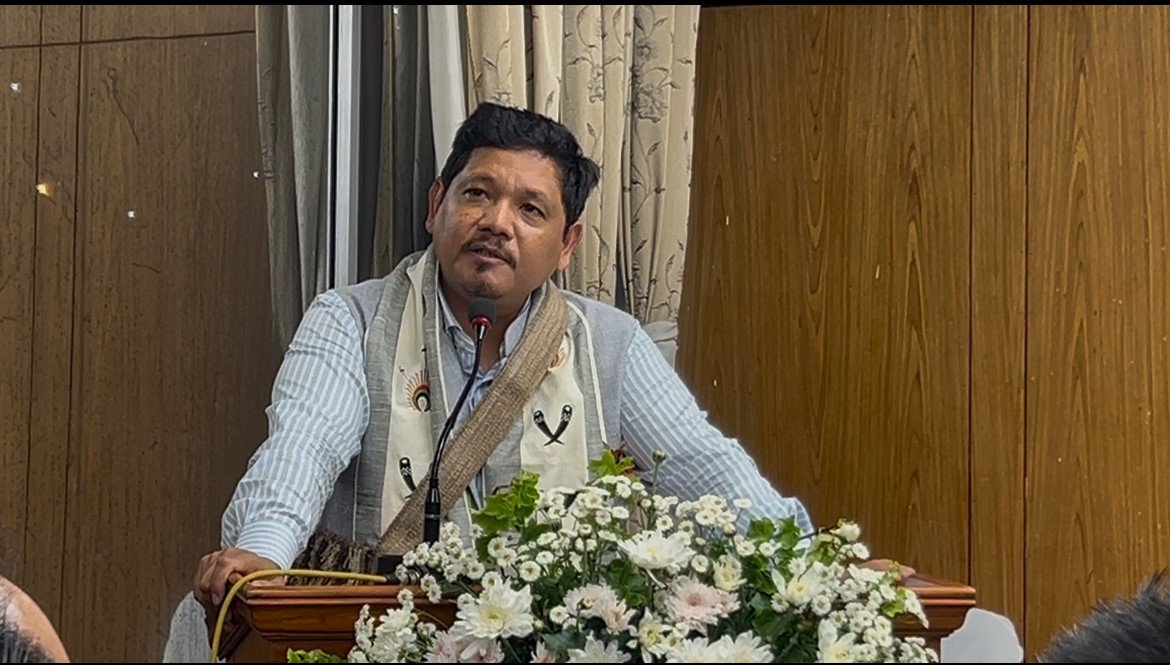Chief Minister of Meghalaya and National People’s Party (NPP) national president Conrad K. Sangma on Friday underscored that the NPP serves as a platform to represent the aspirations and concerns of the northeast people, particularly the indigenous communities, and to address their issues collectively. The goal, he said, is to establish a strong voice at the central level.
Making these remarks during a press conference at Hotel Japfü in Kohima, Sangma asserted that although NPP is a nationally recognized party, its focus is concentrated in the northeast region.
“Our approach is clear—maintaining a national outlook while prioritizing regional perspectives. While we work in the nation’s larger interest, we remain focused on northeast-specific issues. Whenever the region faces challenges, the NPP has consistently raised its voice,” Sangma said.
Assuring that the NPP would continue advocating for the people of the region, he also addressed some concerns.
On the BJP’s role as opposition in Meghalaya despite being a coalition partner, Sangma noted that while every party has its own identity and agenda, coalition partners typically avoid public criticism. “If there are concerns, they should be discussed internally. Some statements made by the other party have been irresponsible, but as leaders, we focus on resolving differences and moving forward,” he said.
Regarding the NPP’s position in the evolving political landscape, Sangma acknowledged the complexities of the northeast where each state requires a distinct approach. “The political dynamics here are fast-paced and varied. We must remain flexible, adaptive, and grounded with strong local teams to navigate these challenges,” he explained. Despite difficulties, he affirmed that the NPP’s growth remains evident.
Commenting on political defections, Sangma stressed the need for practicality and maturity. “Such movements are part of politics, but we are resolving internal challenges through dialogue with our leaders and coalition partners. Our focus remains on our goals, and we will handle situations as they arise,” he added.
Download Nagaland Tribune app on Google Play

When asked about resistance from pressure groups against railway projects in Meghalaya, Sangma clarified that those groups demand the implementation of the Inner Line Permit (ILP), a resolution for which has already been passed by the Meghalaya assembly. “The Government of India has yet to respond. We are engaging with NGOs and pressure groups, understanding their genuine concerns, and exploring alternative mechanisms to address illegal immigration. Once resolved, progress can be made,” he said.
On the recent United States government travel advisory in northeast India, Sangma criticized the advisory linking northeastern states to terrorism and violence as incorrect and assured that he will take the matter up with the US Ambassador to India, seeking clarification and urging its withdrawal.
In regard to potential alliances in Nagaland, Sangma expressed optimism. “We aim to secure more seats and hope to be part of the next coalition government,” he stated.
Meanwhile, responding to the Union Home Minister Amit Shah’s comments on promoting Hindi over English, Sangma acknowledged the importance of preserving regional languages but disagreed with sidelining English. “While promoting local languages is right, eliminating English is impractical—it remains crucial for official work, global competitiveness, and states like Nagaland and Meghalaya, where English proficiency is a strength,” he added.

